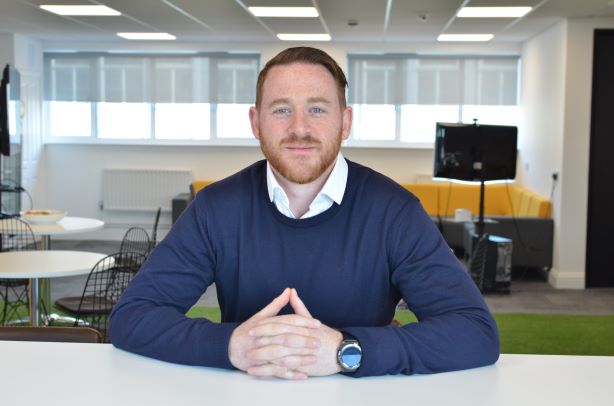Head of global talent community at Learning People
View Author ProfileWith great prospects, high pay and freedom over where to work, coding jobs are some of the most desirable in tech and a joy for natural problem-solvers. But how can those with no experience get a foot on this fast-rising ladder?
Coding for all
Many people stall at the research stage, put off by job adverts with a checklist of experience they can’t tick. Yet skills from other jobs are transferable – both from the wider tech world and beyond. Start by understanding how your current skills apply and finding ways to fill the gaps.
Before you start any online research, ask yourself a couple of initial questions to identify the skills you currently hold, whether technical or non-technical, and how you can attribute these to your first coding job. Are you a:
Leader: Does the technical side of writing code drive you? Or is it helping others to get better results, taking ownership of projects, negotiating deadlines and communicating what works and what doesn’t? If it’s the latter, a full-stack web developer role sounds like it matches you perfectly.
A full stack web developer is a fantastic career where you’ll progress skills in both front and back-end development, leading projects to build user-friendly and engaging websites.
Problem solver: Do you enjoy fixing errors, creating solutions and finding better ways of completing tasks? And do you think you can do so with a calm head, even when things aren’t quite going your way?
Coding is like a puzzle. Only the right piece of code will finalise the project. Back-end development roles could be the perfect fit for you if you’re a keen (and patient) problem solver.
Language lover: In your free time, do you find yourself working through the Duolingo app? Then learning some code will likely come naturally to you.
Remember: it’s not always about being the person who creates the best software. Just by becoming conversant in basic HTML or JavaScript, you’ll be much more valuable in your current role by aligning your skills with the tech and software that is relevant to your industry.
Of course, if you absolutely love coding and decide it’s exactly the career you’d like to focus on, why not try software development?
Design enthusiast: Do you appreciate a beautifully designed and well-assembled website? Does finding out how to create that visual layout or craft an effortless experience appeal to you?
If you’re aesthetically focused or enjoy understanding what people need and creating the best solution, a career in UX or UI Design could suit you perfectly.
Practice and progress
Practice makes perfect. To advance your career in coding, practising is a must. Starting out can be difficult – little and often is key. Once you know the language you want to start with, set yourself small goals that each have a deadline and lead towards a bigger, overall understanding of it.
There are plenty of online resources to aid your learning. A great place to start is SoloLearn, a mobile social platform where you can learn and share content with peers around the globe.
It breaks the stereotypes of institutional instructor-centric learning, with a student-centric open platform that is helpful in enabling you to feel part of a larger community. Which leads on to the next tip…
Join a community
Joining a support network of other coders gives you somewhere to turn to for advice and encouragement, whether you’re stuck on a tricky line of code or don’t understand why something isn’t quite working how you initially expected.
You’ll be able to learn from other professionals, while making authentic and collaborative connections – and you might just help someone else on their coding path.
Some great coding communities include:
➔ Stack Overflow
➔ Bytes
➔ CodeGuru
➔ Codecall
➔ CodeProject
Showcase your skills
Coding is a creative career where you’ll be building visually beautiful and engaging pieces of digital work. Put all of that time practising to good use and build an engaging portfolio of your work to date.
Ensure you deliver the ‘wow factor’ when applying for your first code career with your portfolio. Take some tips from these inspiring and memorable digital portfolios:
➔ Robbi Leonardi
➔ Devon Stank
➔ JessDesignTan
➔ Osvaldas
Stay curious
The tech world is constantly evolving, and the code industry is no different. There are new languages, fun trends and changing technologies to keep up with. Stay curious, in the know and up-to-date with all the latest innovations; it will aid your skills and career progression.
Most people realise that tech is part of every part of our lives now. The coding industry is vast and ever-evolving, which means there are some truly exciting career paths you can follow. By learning to code, you’re making great steps in the right direction to future-proofing your career.
Mike Appleby is a Careers Expert and Head of Global Talent Community at Learning People.
Most read in Guides
Trending articles on Guides
Top articles on Minutehack
Thanks for signing up to Minutehack alerts.
Brilliant editorials heading your way soon.
Okay, Thanks!


